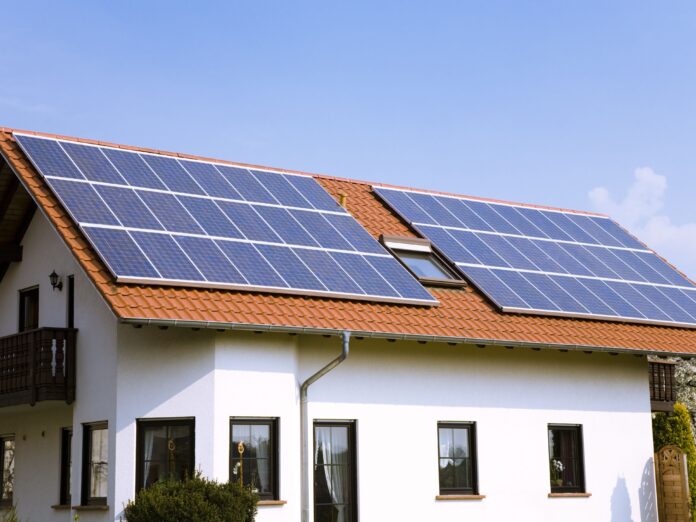Some people may think that solar panels are only best suited to certain types of properties, but in fact, they can be used anywhere as long as the panels have access to sunlight and there is enough room to accommodate them. In this article, we will take you through everything you need to know about whether your property would be suitable for solar panels and how to go about installing them if you decide that it is. You might even find that it could cut down on your energy bills, so let’s get started!
What are the requirements?
In order to find out if your property is suitable for solar panels, you’ll need to consider a few things.
- First, you’ll need to check if your roof gets enough sunlight. If it’s shaded by trees or other buildings, you may not get enough sun to make solar panels worth it.
- Second, you’ll need to make sure your roof is in good condition and can support the weight of the panels.
- Third, you’ll need to check local zoning laws to see if there are any restrictions on installing solar panels.
- Fourth, you’ll need to calculate the size of the area you have available for solar panels.
- Fifth, you’ll need to estimate how much electricity you use and how much sunlight your location gets. Then you’ll know how many solar panels you would need and how much it would cost to install them.
- Finally, you’ll need to decide whether or not these benefits outweigh the cost of installation.
How do I find out about grants and rebates available in my state?
You can find out about grants and rebates available in your state by contacting your state’s energy office or doing a search online. Grants and rebates can help offset the cost of installing solar panels, making them more affordable. Be sure to check the eligibility requirements for each program to see if your property qualifies. You may also want to speak with a solar installer in your area to learn more about what options are available to you.
How will solar panels benefit me?
Solar panels can benefit you in a few different ways. First, they can help you save money on your energy bill. Second, they can increase the value of your home. Third, they can help you be more environmentally friendly. Finally, they can provide you with a backup power source in case of an emergency.
What happens after I install solar panels on my property?
After you install solar panels on your property, you will need to maintain them. This includes cleaning them regularly and checking for damage. You will also need to monitor your electricity usage and make sure that your panels are generating enough power. If you live in an area with extreme weather conditions, you may need to take special precautions to protect your panels. The cost of installing and maintaining solar panels is worth it if you want to save money by using renewable energy sources.
Am I going to save money by using solar energy?
Solar panels are a great way to save money on your energy bill, but there are a few things you need to consider before making the switch.
Here are a few questions to ask yourself to see if solar panels are right for you:
- Do I own my home, or am I renting?If you’re renting, you’ll need to get permission from your landlord before installing any solar panels.
- Is my roof in good condition?Solar panels need to be installed on a sturdy, stable roof to work properly. If your roof is old or in disrepair, it may not be able to support the weight of the panels.
- Do I have enough sun exposure?Solar panels need direct sunlight to generate power.
If your house faces north and doesn’t receive much sunlight, you might want to reconsider whether or not you want solar panels. You also want to take into account the number of hours per day that your roof will be exposed to direct sunlight – even one hour can make a big difference!
Can I keep using my existing power company or do I have to switch to a new one?
You can usually keep your existing power company and just buy solar panels to supplement your energy needs. The size of your property doesn’t really matter when it comes to solar panels, but the amount of sunlight it receives does. If your property doesn’t get a lot of suns, you might not be able to produce enough energy to make solar panels worth it.
Can people tell if I use solar panels by looking at my home?
No, people cannot tell if you use solar panels by looking at your home. In fact, most solar panels installed on homes today are very sleek and unobtrusive. The only way someone would be able to tell if you have solar panels is if they knew what to look for or if you told them.
Are there different types of solar panel systems available?
Solar photovoltaic (PV) panels are the most common type of solar panel, and they convert sunlight into electricity. There are also solar thermal collectors, which are used to heat water or air. Solar PV panels can be used for either on-grid or off-grid systems. On-grid systems are connected to the electrical grid, and excess electricity can be sold back to the utility company. Off-grid systems are not connected to the grid, and you will need to store any excess electricity in batteries.
Can my business use solar power too?
The cost of solar panels has dropped significantly in recent years, making them a more viable option for business owners looking to save on energy costs. But before you make the switch to solar, there are a few things you need to consider.
- First, how much roof space do you have? Installing solar panels takes up a lot of surface area and if your roof is too small or angled in such a way that it can’t support them, then your only other option is to buy land and build an expensive ground-mounted system.
- Second, how much electricity do you use on average each month? You’ll be able to calculate this with some simple math: Multiply the square footage of your roof by 200 watts per square foot (this will give you the total amount of watts) and divide that number by 1,000. That’s the size of your electric bill per month.
- Third, what type of utility company do you use? Different providers charge different rates for power, so if you’re with one that offers solar incentives or discounts, it might work out better than sticking with what’s already provided by default.
- Fourth, where are you located? If you live in a place where sunlight hours are limited throughout the year or if cloudy days persist even during the summer months, then installing solar panels just isn’t worth it. Similarly, if your property faces south but the sun sets early in the evening and winter days are short and dark, chances are good that there won’t be enough light to produce enough electricity.
- Finally, while many utilities offer rebates and tax credits for those who install solar panels on their property, check first to see if they also offer any additional benefits as well – especially when it comes to environmentally friendly options like green gas heating systems.
Conclusion
The answer to this question depends on a few factors, such as the climate, the amount of sunlight your property receives, and the orientation of your roof. If you live in a sunny area and have a south-facing roof, chances are good that solar panels will work for you. However, if you live in a cloudy area or have a north-facing roof, solar panels may not be the best option. Ultimately, it’s best to consult with a solar panel expert to see if your property is suitable for this type of renewable energy source.


